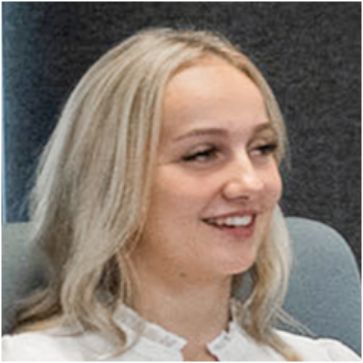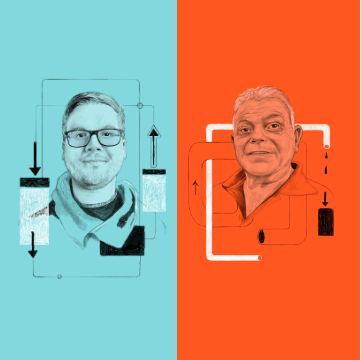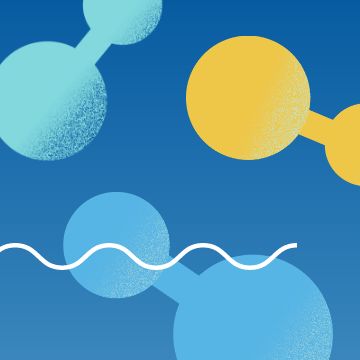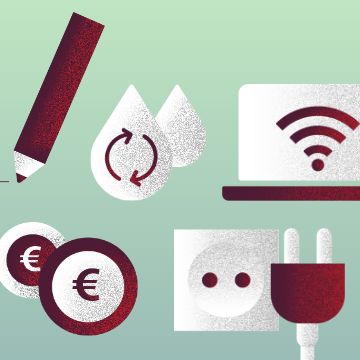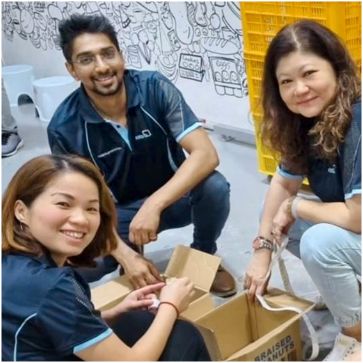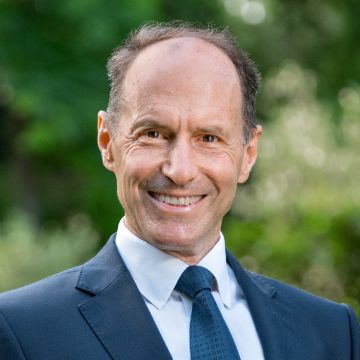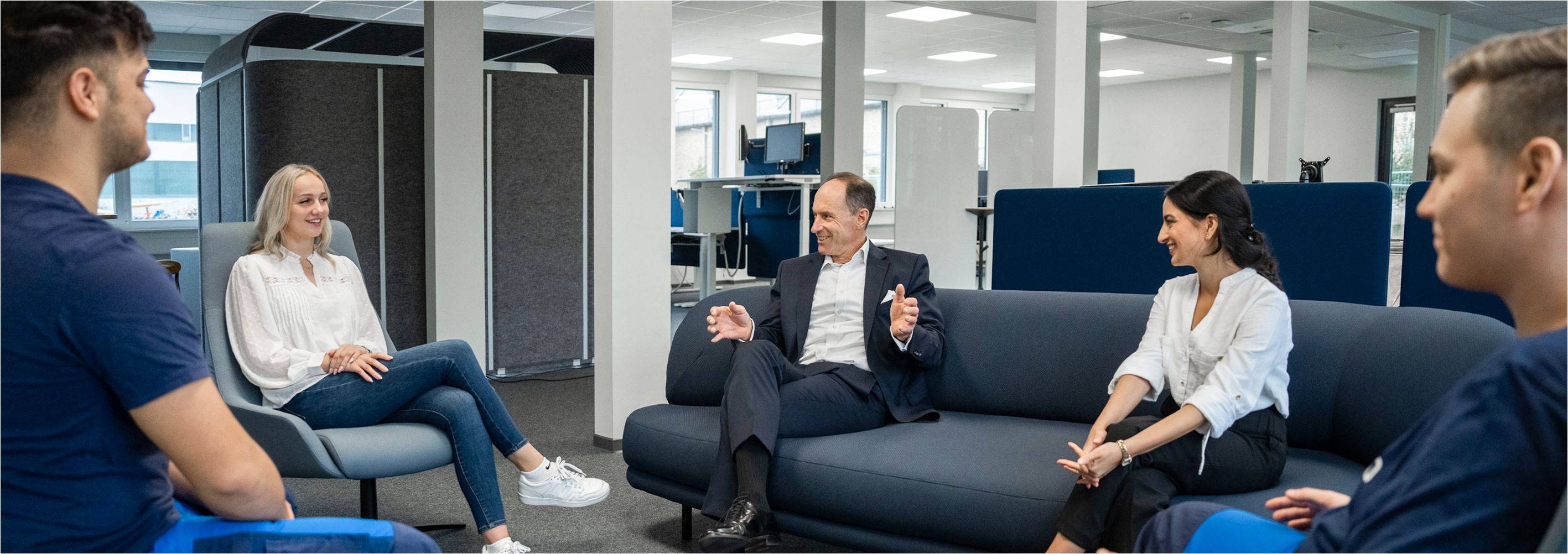
Be bold in Seizing Opportunities
The future is by its nature uncertain, but still promises a wealth of opportunity. This is the view taken by KSB CEO Dr Stephan Timmermann and four of the company’s young talents. In this interview, they talk about how they see their future and deal with the challenges ahead.
Dr Stephan Timmermann, CEO, talks to four of KSB’s young talents about their plans for the future.
Vanessa, Rida, Louis and Endrit, we have agreed on first-name terms for this interview. You are all at the beginning of your professional careers at KSB. What plans do you have for your future?
Louis Becker: I work in the assembly shop for our standardised water pumps, and am also undertaking vocational training to become a master craftsman. I want to successfully complete this qualification and maybe even add a degree in mechanical engineering afterwards.
Rida Naz: I am currently writing my Master’s thesis on the subject of process management at KSB. After that, I’ll be on the lookout for a trainee position or a direct entry into a job. Writing a doctoral thesis might also be an option.
Endrit Bozhdaraj: My first goal is to successfully complete my training. Then I would like to become a technician. Later, I could imagine working as a trainer.
Vanessa Kiessling: My first goal is also to complete my training as a management assistant for digitalisation management as successfully as possible. After that, many doors will be open to me at KSB for further training. I find the idea of going abroad very appealing. But I don’t have any concrete plans yet.
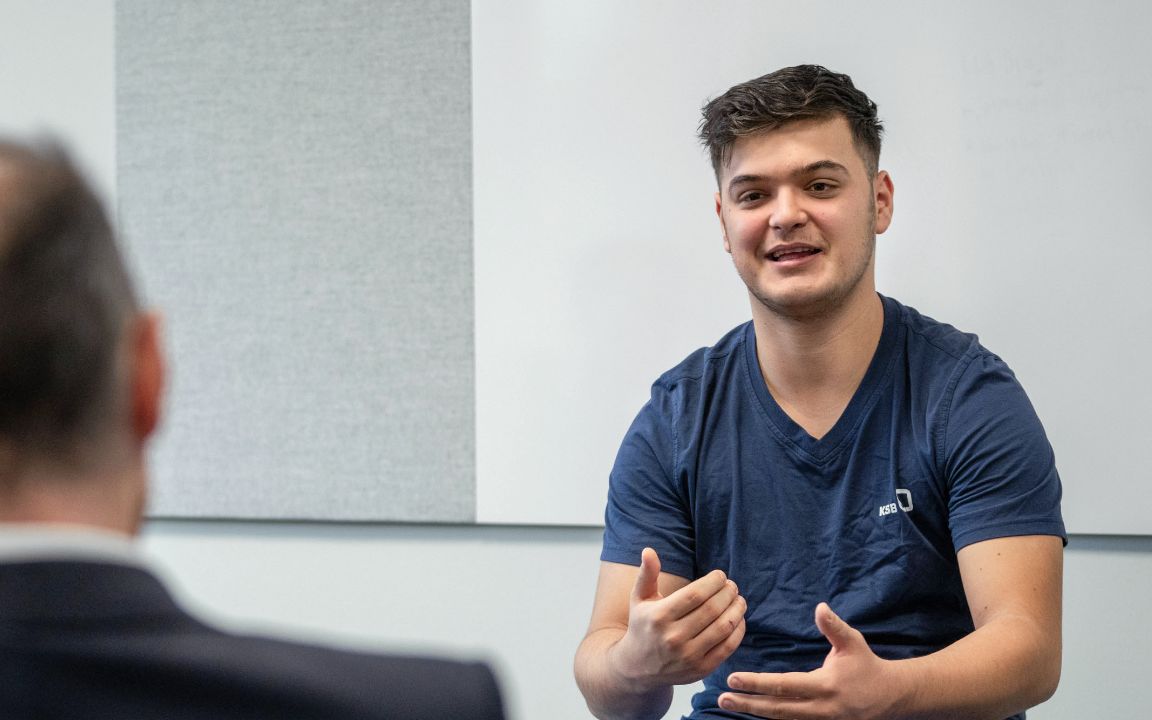
“Every problem has a solution,”
says Endrit Bozhdaraj, who is training as a cutting machine operator at KSB.
Dr Timmermann, you are KSB’s CEO. Do you still remember your first steps into the world of work and your expectations at the time?
Stephan Timmermann: I remember it very well. Back then, young engineers had excellent prospects. Major companies offered junior trainee programmes. But I was interested in something concrete, a task where I could see the results of my work in the short term. I was fortunate enough to find a job where this was possible which offered me a lot of responsibility early on. I was tasked with planning and building a new production plant for a mechanical engineering company.
What advice would you give your junior staff for their careers?
Stephan Timmermann: Education and professional development are more important than we sometimes realise. A good professional qualification creates value for life – because nobody can take qualifications away from you. Knowledge and expertise make all the difference in the global competition with other highly qualified minds. If you have the opportunity, you should also gain experience abroad. This not only expands your horizons and intercultural skills, but also leads to greater openness. These are all important qualities that international companies are looking for.
What role do concrete plans play in your career?
Stephan Timmermann: My tip: Forget trying to meticulously plan and execute your career journey! Focus on your sphere of influence. Be bold in seizing opportunities and deliver exceptional performance. Then your career will automatically progress.
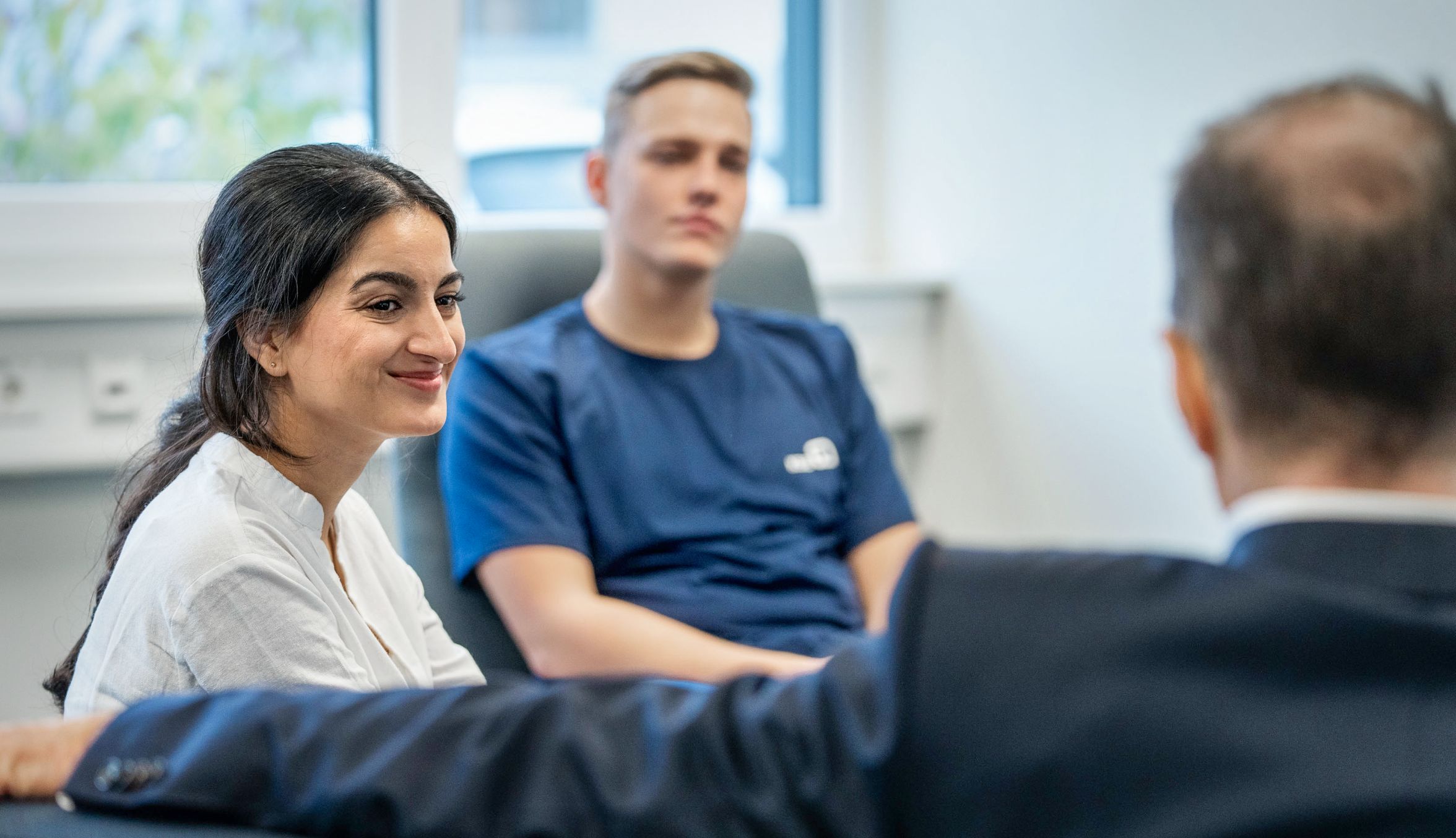
Rida Naz works at KSB as a student trainee and is writing her master’s thesis on process management.
What is important to you in your day-to-day work?
Vanessa Kiessling: Positive thinking is important to me. Private and professional life both have their ups and downs. I find it easier to deal with setbacks when I look ahead. That’s why I try to look to the future with optimism.
Louis Becker: I think the team around you is also important. Those who get on well with their bosses and colleagues also have an easier time at work.
Endrit Bozhdaraj: Sometimes you need a kick in the backside. Otherwise you might not always fully devote yourself to a task.
Rida Naz: Getting things done also takes a lot of self-discipline. It’s important for me not to lose sight of my goal.
Four Young Talents from KSB
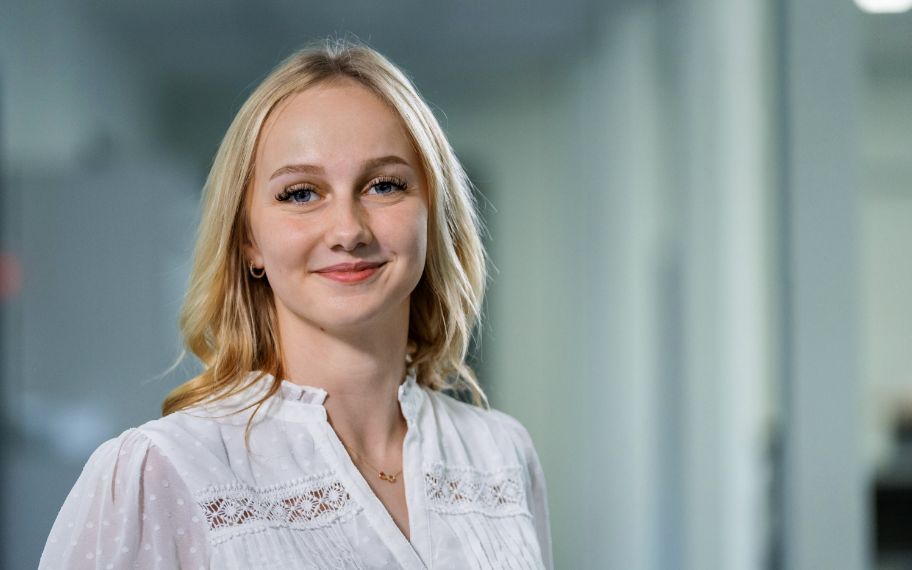
Vanessa Kiessling
20 years old
In training as a management assistant for digitalisation management
Endrit Bozhdaraj
19 years old
Trainee cutting machine operator
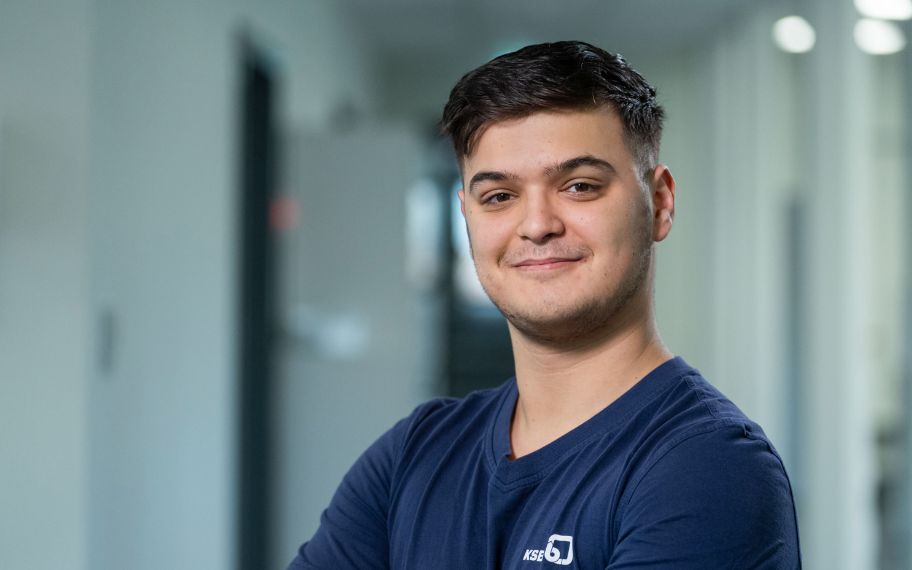

Rida Naz
29 years old
Working on her master’s thesis on process management at KSB
Louis Becker
23 years old
Industrial mechanic in pump assembly at KSB
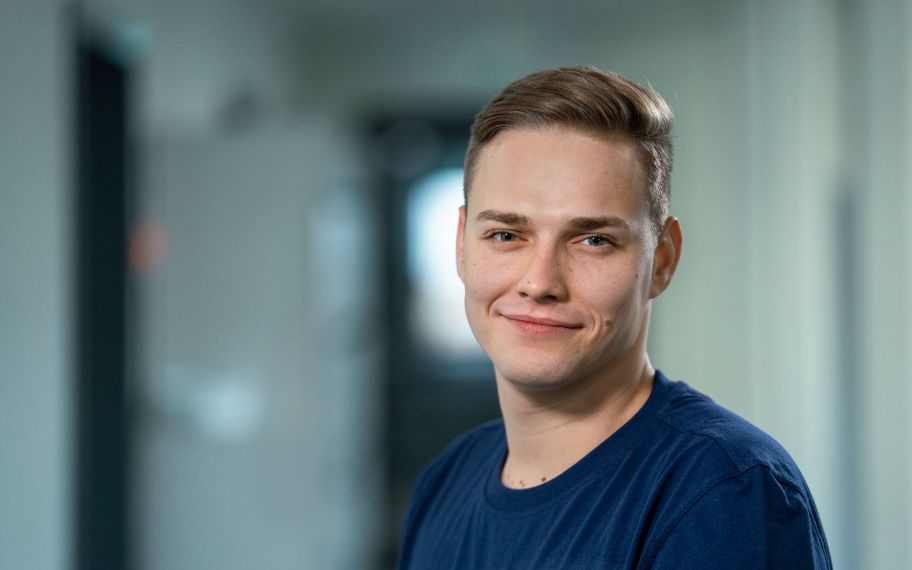
One current and future challenge is the rise of digitalisation, which is bringing about many changes. How do you deal with it?
Vanessa Kiessling: Today, most communication at home and at work happens via digital channels and everything is networked. I am looking forward to seeing what comes next and discovering how it will make our everyday lives easier.
Louis Becker: In our department, we book time off using an app. Our payslips are sent digitally to our smartphones; we no longer use paper at all. In my free time, I use ChatGPT to support my learning. I think artificial intelligence is going to be an inevitable part of our future.
Endrit Bozhdaraj: Almost everything in our training programme is also digital. This means I can quickly look up something on a device, for example how a machine works.
Rida Naz: There is no need to be afraid of digitalisation. On the contrary, we can use technologies like artificial intelligence to make business and production processes even more efficient. This creates capacity for employees, who can then devote more time to other issues.
“Meet change with a smile.”
Dr Stephan Timmermann, CEO
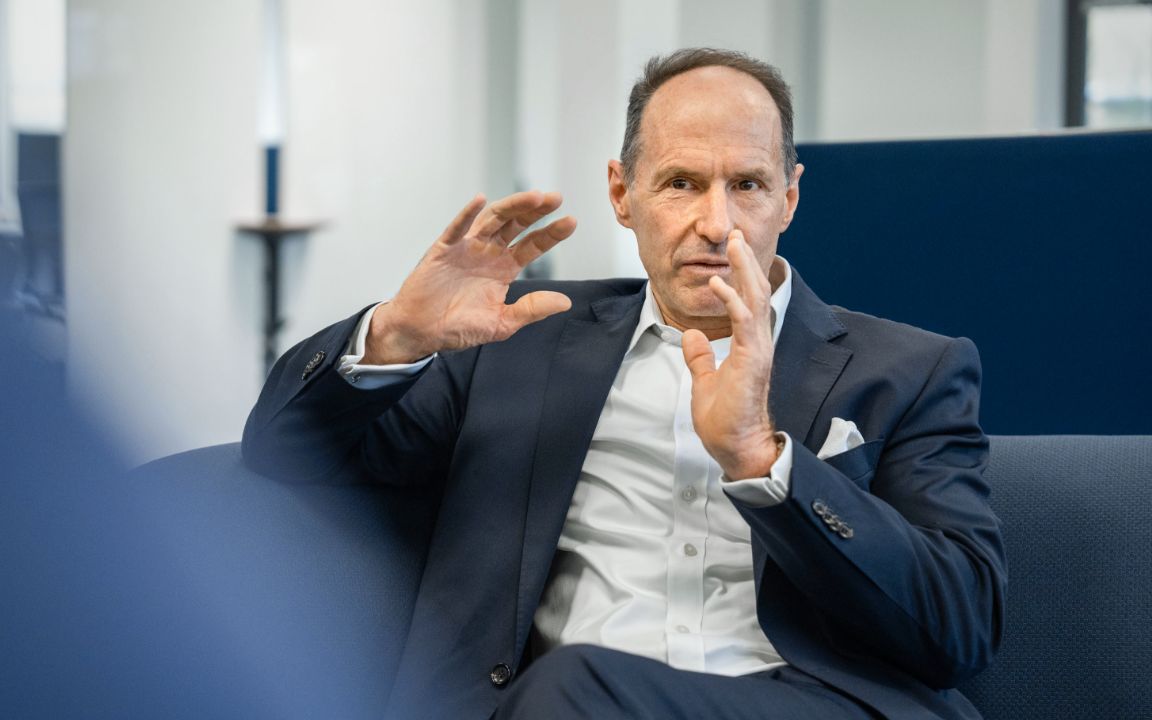
Dr Timmermann, younger people often take changes such as the digital transformation in their stride. Older people sometimes find this more difficult. Why is that?
Stephan Timmermann: Most people resist change initially. This may become more pronounced with age because you want to focus your energy on other things – yet dealing with change costs energy. But change is part of life. When the first robots arrived in factories, they did not replace the people working there, but supported them. One thing is clear: Nobody can stop progress! So I agree with those who say: Meet change with a smile. Focus less on the risks and more on the opportunities that present themselves.
To what extent does this also apply to companies like KSB?
Stephan Timmermann: There has been no shortage of challenges for companies in general in recent years. This was also the case at KSB. Whether we face a pandemic, armed conflict or natural disaster: We always concentrate on how our company will be impacted – in the short and long term. Which employees will be affected? These are the key questions. Every day, my colleagues and I in Management are confronted with changes which require our attention and demand we find solutions.
What is the secret behind KSB’s particular resilience in recent years?
Stephan Timmermann: Regardless of the challenges facing us, it always helps that we are a global company with numerous products for a wide range of markets. We are active in more than 100 countries, and our Global Manufacturing Network enables us to compensate for economic imbalances in different parts of world. This makes us a little more resilient than other companies. And we have employees who stick together and give their best when times are tough.
“I think artificial intelligence is going to be an inevitable part of our future,”
says Louis Becker, who works as an industrial mechanic in pump assembly at KSB.
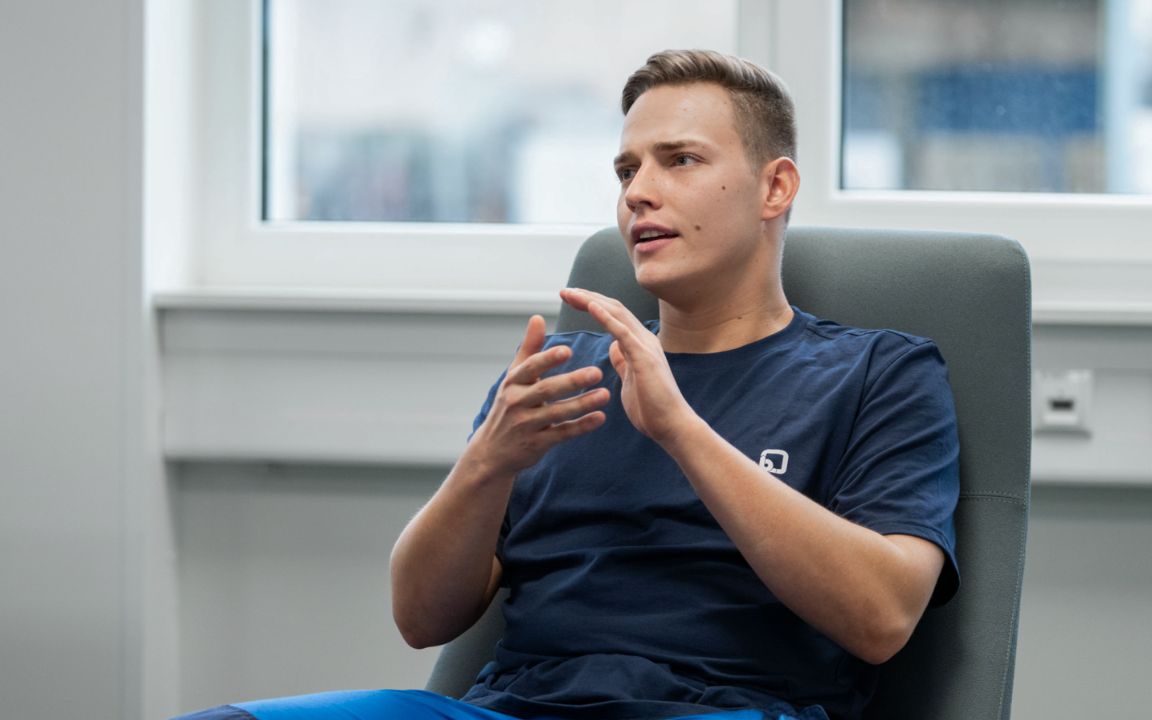
How do you deal with difficult situations at work?
Endrit Bozhdaraj: Every problem has a solution. My colleagues in the training workshop always support me when I get stuck. I really appreciate that.
Vanessa Kiessling: Especially as a new employee, it is helpful to get help from the team. My colleagues have always supported me so far. For me, it is important that you can learn a lot from difficult situations.
Louis Becker: It depends on whether I can solve a problem on my own or whether I need support. I usually manage on my own. But when I can’t, it’s always good to get help.
Rida Naz: First of all, I try to stay calm and not panic. This means first analysing a problem and thinking about possible solutions.
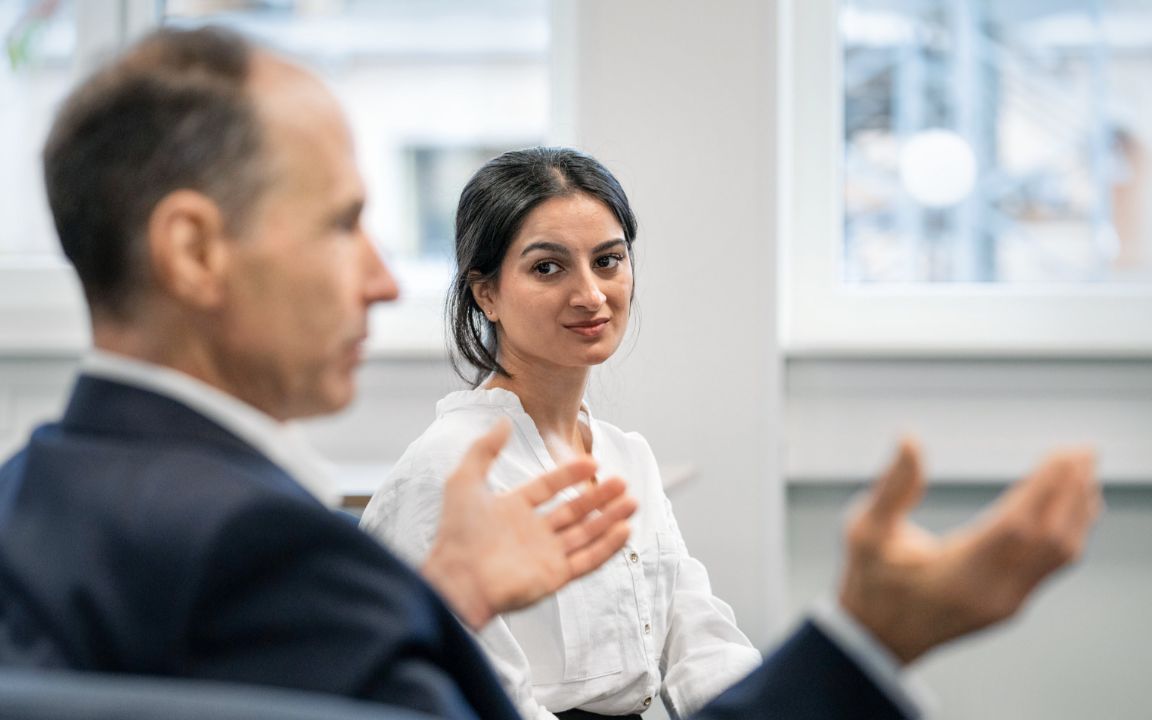
“Nobody can stop progress,”
says Dr Stephan Timmermann. “The point is utilising the resulting opportunities.”
Dr Timmermann, how can we confront life with confidence?
Stephan Timmermann: For me, facing the world with confidence above all means being an optimist, and knowing that many things which seem insurmountable today may become relatively manageable or even resolve themselves tomorrow. And: Let the future come to you, identify the challenges and develop a plan. This opens up many paths which can be explored despite their obstacles. The road may twist and turn, but the goal should remain in sight. Those who confront life with confidence tend to focus on the search for solutions rather than the obstacles they encounter. This attitude will support you in your work – and in your private life.
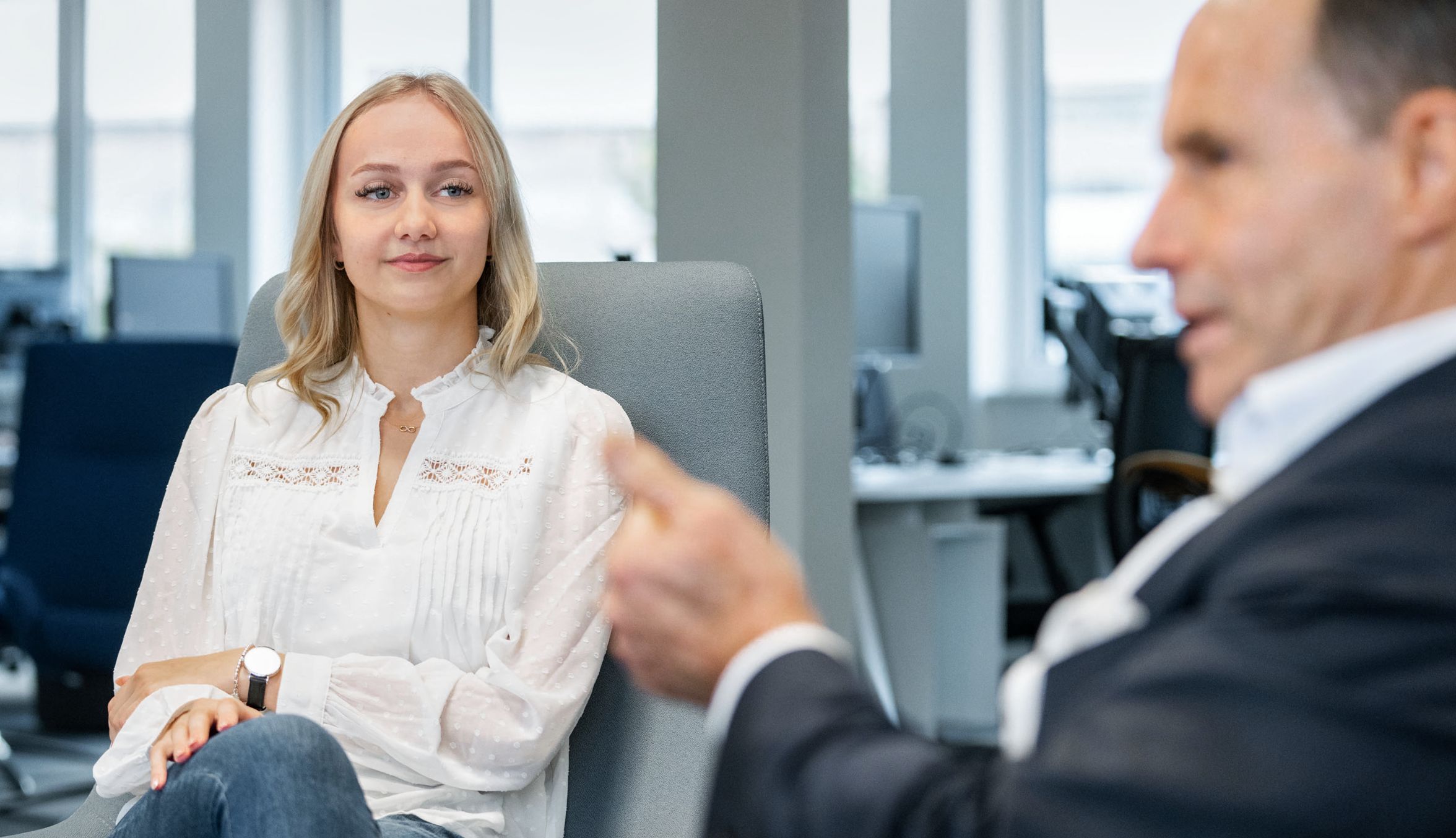
Vanessa Kiessling, in training to become a management assistant for digitalisation management, focuses on positive thinking.
